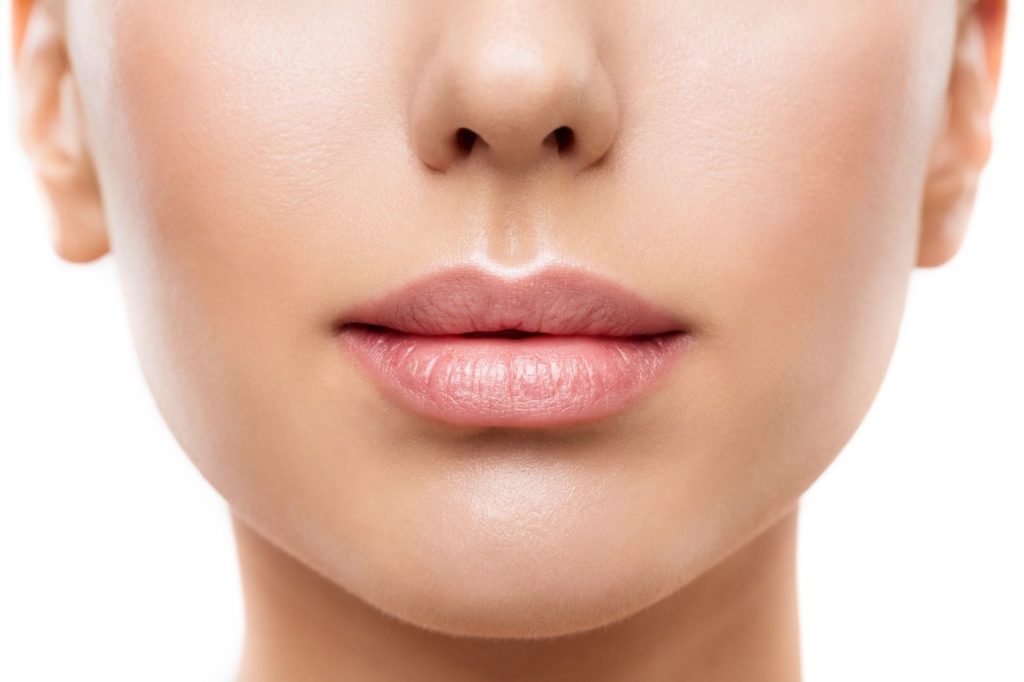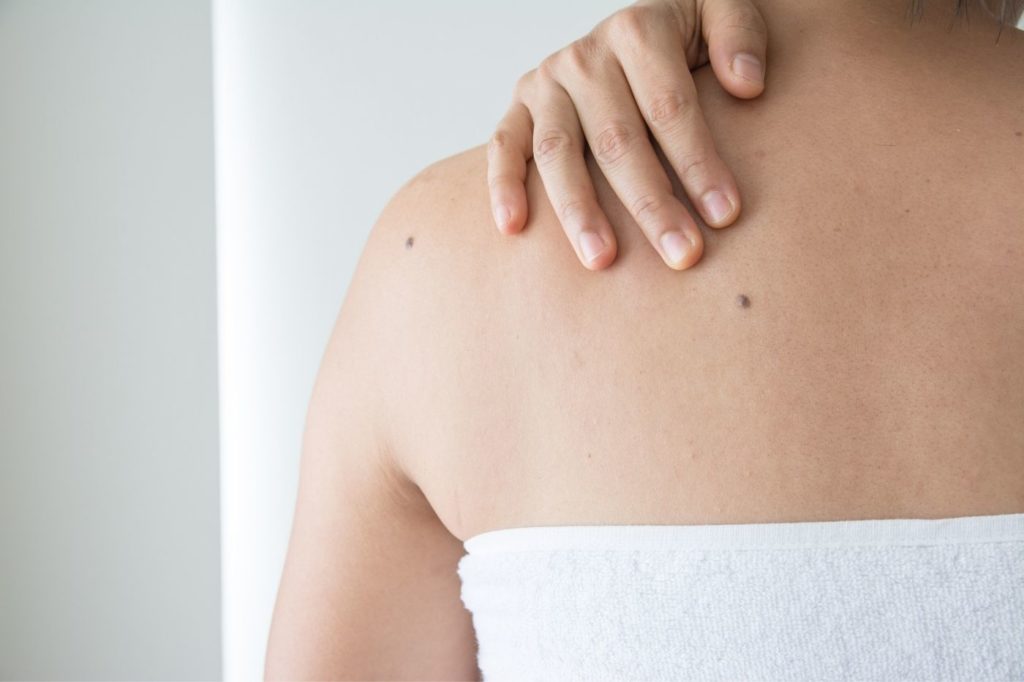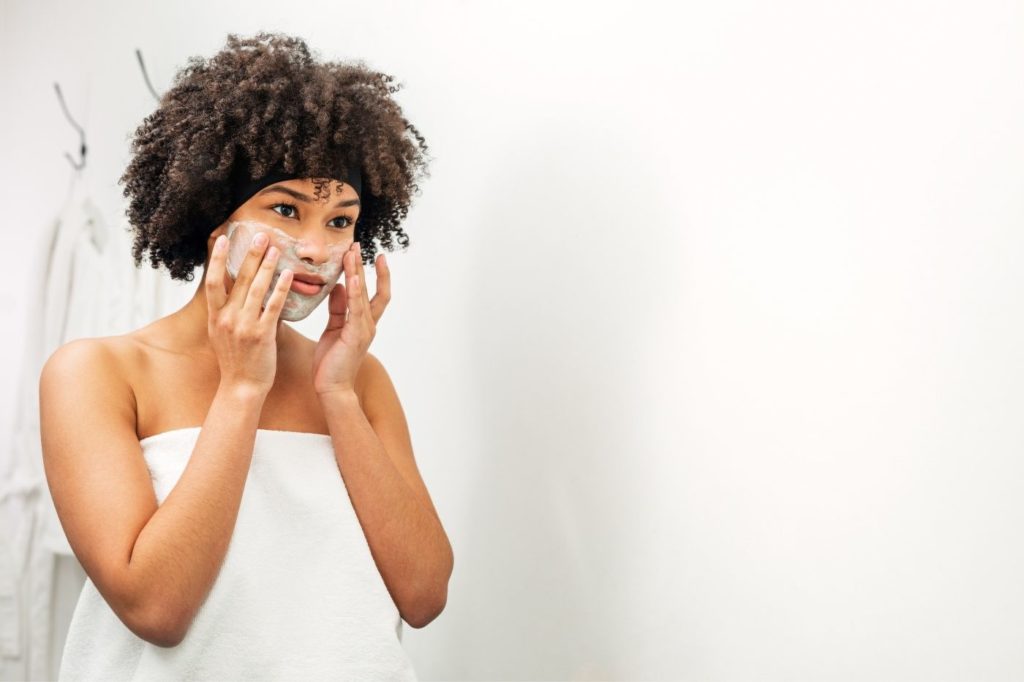If you’ve been struggling with chronic breakouts and would like to try a more natural treatment style, Chinese herbal medicine for acne may be a great starting point for you. For many acne sufferers, these 5 simple steps can heal stubborn breakouts.
What is the best natural acne treatment? The best natural acne treatment is subjective — not every treatment works for every person. However, the power of Chinese traditional medicine treatments can be an excellent solution for acne patients who have found no relief in topical creams and serums.
Western vs. Traditional Chinese Medicine
While many Western medical treatments are focused on relieving the symptoms of skin disorders, traditional Chinese medicine examines the root cause of skin conditions and addresses them through a more holistic approach.
Chinese medicine is a system based on a very different understanding of the human body than Western medicine.
Can Chinese medicine treat skin problems? Yes, Chinese medicine has long been used to treat skin problems. Much of the treatment plan focuses on how blood and energy flow throughout the body and environmental factors.
According to Chinese medicine, what causes acne?
While more Western treatment methods discuss sebum, skin cycles, and hormones, there’s a very different focus for Chinese herbal solutions. When it comes to Chinese medicine, “it’s getting hot in here,” as Nelly once said.
Chinese medicine postulates that acne develops due to an imbalance of heat or dampness. Excess heat builds up in the lung and stomach meridians, or lines of energy that flow throughout the body and rises to the face. It shows itself as inflammation like redness and pustules.
Another traditional Chinese cause of acne lesions is dampness or damp heat, which is brought on by dairy and oily, cold, and/or processed foods. This triggers oily skin, according to practitioners. Other factors, such as phlegm or a qi deficiency (low energy), can also contribute to severe acne.
In Chinese medicine for acne, the causes of breakouts are seen as highly individualized. Therefore, treatment is catered to the person: their energy, diet, and whatever stagnation or imbalances they struggle with.
Despite the personalized nature of this style of medicine, 5 steps run across most treatment plans. Many are backed by scientific studies, too. Below, I describe a method of using Chinese herbs and medicine for acne.
What is the best herbal treatment for acne? The best herbal treatment for acne is a combination of topical remedies and herbal teas and supplements with a healthy lifestyle.
Step 1: Acne-Healing Diet
Both traditional Chinese and Western medicine agree that diet plays a significant role in exacerbating or calming acne symptoms for almost all types of acne. Here are some of the suggestions Chinese medicine has for an acne-healing diet:
-
- Try mung beans. These little beans are nutrient-dense, high in protein and antioxidants, and even contain vitamins that may help prevent hormone fluctuations. They can easily be added to soups and salads.
- Avoid greasy, spicy, and oily foods. It’s believed that these contribute toward a buildup of heat or dampness in the body.
- Add more “yin foods.” This could include bananas, broccoli, mushrooms, bitter gourd, and spinach.
- Stay hydrated. One explanation for acne is that the skin is reacting to an imbalance of yang. Water can help to balance out the yin energy in the body.
- Eat at a regular time. “Irregular eating” is a cause of digestive stress, which can upset the stomach meridian and lead to acne.
Science backs the benefits of mung beans, drinking more water, and whole foods to promote overall wellness, so these dietary changes may benefit you in more ways than one.
Step 2: Topical TCM Remedies
The topical remedies that TCM offers vary by the root cause of acne. Here are the best skincare herbs and topical remedies for acne, according to TCM:
- Licorice root. This herb is good for clearing up heat and toxins in the body, according to TCM. While it can be made as a tea, it can also be used topically on acne-prone areas. Talk to your healthcare provider before taking licorice root, as there are potential risks of cardiovascular issues (including high blood pressure and heart arrythmias) with some licorice root oral supplements.
- Honeysuckle flower, or jin yin hua. This traditional herb is often used in face washes, and it is often recommended to clear heat and remove toxins.
- Pearl cream. This topical cream is believed to help flush out toxins in the blood and eliminate acne bumps on the skin.
- Raw honey. While often recommended for drinking with water in Chinese medicine, honey can also be suitable for topical application. Its antibacterial, anti-inflammatory properties make it an excellent option for mixing with herbs to apply onto the skin.
What is the best herbal medicine for pimples? There are many herbal medicines for pimples and papules that might be right for you, and there’s no one-size-fits-all. Chinese herbal medicine is all about balance and personalized treatment.
Consulting with a holistic dermatologist or herbalist that has training in TCM will allow you to find the best topical TCM remedies for your case, whether it’s heat or dampness.
Step 3: Physical Activity
Modern medicine and these ancient practices certainly agree on this point! Physical activity is fantastic for managing blood sugar levels and hormones, improving sleep, and maintaining healthy body weight, among other things.
All of these factors can help reduce acne from the inside out. Traditional ways to move the body and balance energy include qigong and tai chi. However, only moderate sweating is desirable — don’t overexert yourself.
Also, be sure to clean up after exercise to avoid leaving sweat on your skin, which can trigger more acne.
Step 4: Herbs & Adaptogens
Chinese herbs for acne are not just for applying to the surface of the skin. Teas made from herbs and adaptogens are also highly recommended to improve acne symptoms.
Licorice root is more than a topical treatment — licorice tea may cool down excess heat and detoxify. Dang gui is another option for taking internally, known as a “women’s herb” that is said to moderate hormones and cleanse the blood.
Adaptogens, or plants that help the body moderate its stress response, are sometimes recommended to treat acne in Chinese traditional medicine. These may include holy basil, ginseng, or cordyceps. Certain mushrooms are also popular adaptogens.
How long does it take Chinese herbs to work? Chinese herbs usually take at least 1-2 weeks to work. The amount and type of herbs and adaptogens you take should be closely guided by a professional to prevent any side effects.
Step 5: Acupuncture
What is acupuncture treatment for acne? Acupuncture treatment for acne is the process of placing tiny needles into pressure points around the body. This treatment is believed to remove toxins and improve blood and energy flow to boost skin health.
Use of acupuncture is often prescribed in TCM to clear heat, drain out dampness, and increase yin. In fact, there is scientific evidence that acupuncture can have an influence on hormone balances and menstruation.
Facial cupping is another time-honored remedy that stimulates blood flow, believed to improve blood stasis by increasing circulation and draining toxins away from the skin’s surface.
Working With Your Dermatologist
Can Chinese medicine cure acne? Chinese medicine may be able to help cure acne in some cases. However, it’s always important to treat acne holistically, not just with a cream.
While some Chinese herbs and medicines for acne require a specialist, others can be guided by the advice of a holistic dermatologist. Talk with your dermatologist to see if rounding out your skincare routine with these diet, exercise, and herbal tips can complement your treatment.
Sources
- Guan, F., Lam, W., Hu, R., Kim, Y. K., Han, H., & Cheng, Y. C. (2018). Majority of Chinese medicine herb category “Qing Re Yao” have multiple mechanisms of anti-inflammatory activity. Scientific reports, 8(1), 1-11. Abstract: https://pubmed.ncbi.nlm.nih.gov/29743639/
- Fathizadeh, N., Ebrahimi, E., Valiani, M., Tavakoli, N., & Yar, M. H. (2010). Evaluating the effect of magnesium and magnesium plus vitamin B6 supplement on the severity of premenstrual syndrome. Iranian journal of nursing and midwifery research, 15(Suppl1), 401. Full text: https://www.ncbi.nlm.nih.gov/pmc/articles/PMC4161081/
- Skerrett, P. J., & Willett, W. C. (2010). Essentials of healthy eating: a guide. Journal of midwifery & women’s health, 55(6), 492-501. Full text: https://www.ncbi.nlm.nih.gov/pmc/articles/PMC3471136/
- Bean, J. F., Vora, A., & Frontera, W. R. (2004). Benefits of exercise for community-dwelling older adults. Archives of physical medicine and rehabilitation, 85, 31-42. Full text: https://medlineplus.gov/benefitsofexercise.html
- Park, S. Y., Jung, S. J., Ha, K. C., Sin, H. S., Jang, S. H., Chae, H. J., & Chae, S. W. (2015). Anti-inflammatory effects of Cordyceps mycelium (Paecilomyces hepiali, CBG-CS-2) in Raw264. 7 murine macrophages. Oriental pharmacy and experimental medicine, 15(1), 7-12. Full text: https://www.ncbi.nlm.nih.gov/pmc/articles/PMC4371127/
Ko, J. H., & Kim, S. N. (2018). A literature review of women’s sex hormone changes by acupuncture treatment: analysis of human and animal studies. Evidence-Based Complementary and Alternative Medicine, 2018. Full text: https://www.ncbi.nlm.nih.gov/pmc/articles/PMC6276442/



